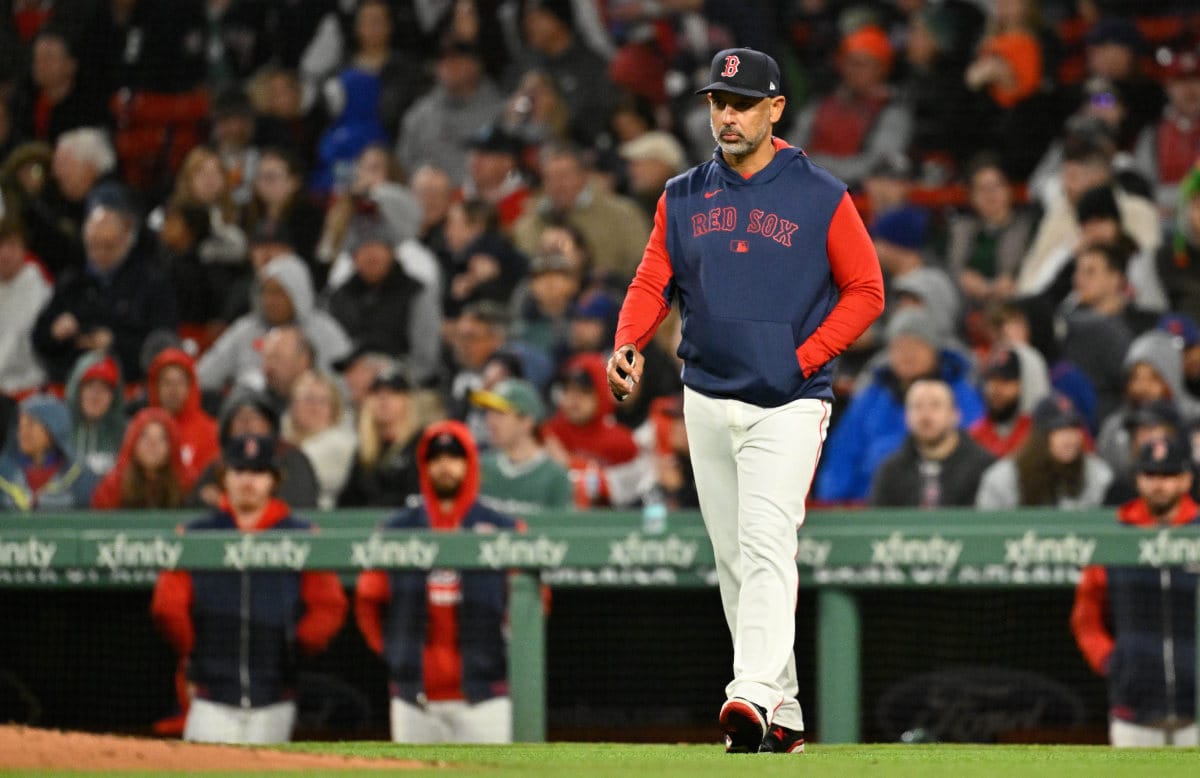Red Sox Need A Culture Shift

The Red Sox had clawed their way back to .500 going into last night's series finale against the New York Mets. They were looking for a sweep. They had their ace, Garrett Crochet, on the mound. Things looked promising.
It was, particularly, good timing for the Red Sox to have their ace on the hill, given how taxed the bullen had been recently. The night before, Walker Buehler was ejected after just 2 1/3 innings. The bullpen responded with 6 2/3 scoreless innings, helping secure a 2-0 Red Sox win. The night before that, the bullpen gave manager, Alex Cora, another 4 1/3 scoreless innings in a 3-1 victory.
Cora, appearing on WEEI before the game, emphasized the importance of Crochet giving the bullpen a breather by going deep into that night's game.
So imagine everyone's surprise – especially Garrett Crochet's – when Alex Cora strolled out to the mound in the sixth inning, pulled one hand from his jacket pocket, and waved in Liam Hendricks from the bullpen after Crochet had struck out Juan Soto (for the third time) to start the inning. Crochet, stunned, let out an expletive when he saw Cora make the move.
The game was tied 1–1. Crochet was at just 85 pitches. He had thrown 106 pitches on May 10 and 103 on May 16. He was cruising after a rocky first inning. Surely, he had another 20 pitches—maybe another full inning—in him.
This is the guy the Red Sox signed to be their ace. Their Roger Clemens. Their Pedro. Their Curt Schilling. Their Chris Sale. Crochet inked a six-year, $170 million extension in March to be that guy.
And yet, here was Alex Cora pulling him early to "protect him for games in September and October."
What about the bullpen? Are you not going to need them in September and October? Or are they expendable because they "only" make a couple million a year?
If the Red Sox keep throwing away games like this, they won't need to worry about October. This is a team that has missed the playoffs in five of the last six seasons and finished last in the division in three of them. Waiting for October is a luxury they haven't earned.
Games in April and May count just as much as those in September. One win is one win. In fact, you could argue that a win in May is more valuable – it keeps you in contention to play meaningful games in September. If you don't win games now it won't matter how many games you try to win in the final weeks.
After the game, Cora told the media that this had been a circled "short" day for Crochet.
"Today was one of those days that we circled up that we're going to be short [with Crochet]."
Was that really the right time to follow the plan—after two overextended bullpen games and with a chance to move above .500? Especially when the Yankees have now won four straight and are opening up a lead in the AL East (five games ahead of the Blue Jays, six ahead of the Sox)?
Cora’s decision sends the wrong message to his team. It suggests that some players matter more than others, that some games don’t really count, and that early-season wins are optional. That’s a dangerous precedent for a franchise that hasn’t sniffed the postseason in five of the last six years.
It also stifles Crochet’s competitive edge. Will he start questioning himself next time he’s on the mound? Am I about to get pulled? What’s my pitch count? Can I waste a pitch here? Is someone warming up behind me? That kind of uncertainty chips away at an ace’s confidence.
These are the mindsets a manager sets early. And right now, Cora could stand to learn something from the new culture being built across town—where every snap, every play, every game matters.
